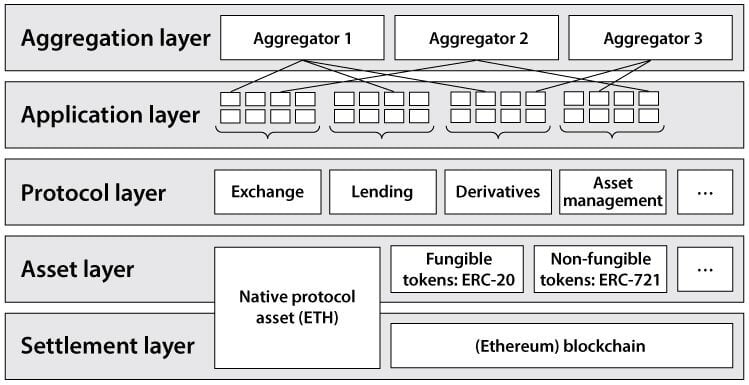
Cryptocurrency has developed rapidly in the last decade and especially in the last few years it has become a buzzword that everyone may have heard but probably not understood properly. It wasn’t much of a big deal when it was initiated in 2009 with the launch of Bitcoin but has taken a turn since then with the value of bitcoin soaring way past the wildest imagination of investors. Bitcoin has had an impact on almost all industries and E-commerce is no exception. In this article, we will take a look and try to understand cryptocurrency along with its benefits, challenges and future applications.
What is Cryptocurrency?

In layman’s terms, Cryptocurrency is the virtual (or digital) currency that uses cryptography for its security. The information is heavily protected under codes which is not accessible by unauthorized people. The most prominent feature of cryptocurrency is the decentralized system. It basically means that the cryptocurrency system is not held under a bank. The transactions of cryptocurrency take place on a network of computers around the world and are recorded on a public ledger called the blockchain. Blockchain technology is another uprising technology which is maintained by a network of computers that are located in all kinds of locations around the world. The most popular cryptocurrency is Bitcoin but now there are many other cryptocurrencies in the market such as Ethereum, Litecoin and Ripple as well. However, none of them has had as huge an impact as Bitcoin yet.
What is Blockchain?

A blockchain stores the data in such a way that it is impossible to steal or falsify. Basically, it is a shared, and unchangeable digital ledger of transactions. The transactions are recorded in each block of the chain and are added to each participant’s ledger whenever a new transaction takes place. Blockchains store data in blocks that are then connected by cryptography, which sets them apart from traditional databases in this regard. Blockchains can be divided into two main categories: public/permission-less and private/permissioned. Anyone can participate in public blockchains like Bitcoin or Ethereum. The majority of cryptocurrencies, including Bitcoin, Ethereum, and others, are created through a process known as mining. The users mine and create the currencies, then use cryptocurrency wallets or payment processors like BitPay to store and send them.
The Current Role of Cryptocurrency in E-Commerce:
Since cryptocurrencies have created a new payment method, online businesses have started introducing this method of payment in their stores. This creates new possibilities for online stores in numerous ways. Cryptocurrency is already an acceptable form of payment at numerous stores, online wallets and online marketspaces:
PayPal:
PayPal introduced a feature to make online payments with cryptocurrency on its website in March 2021. This is an option that allows US users to pay sellers using cryptocurrency directly. The wallet keeps all the cryptocurrencies to itself where it is automatically converted into their fiat/traditional counterpart without any extra charges at all.
Expedia:
Expedia has always been a very up-to-date kind of platform. It isn’t surprising they are currently accepting more than 30 types of cryptocurrencies for over 700,000 hotels and rooms. This is made possible due to partnerships with various platforms that are also accepting cryptocurrencies. For instance, Travala is one such crypto-friendly platform.
eBay:
Although eBay hadn’t yet initiated accepting cryptocurrencies as a form they did make a statement that hints that it could be a very real possibility in the near future. They hinted that it might be acceptable to make crypto payments using bitcoin specifically.
Benefits of Cryptocurrency in E-commerce:
1. Lower Transaction Fees:
The transaction fees on cryptocurrency is negligible if we compare them to regular transaction fees through traditional banks. Traditional payment methods like credit cards cost more because of cuts for intermediaries like banks. Since that is not a concern for cryptocurrency transactions, they’ve lowered transaction fees. This gives an edge to cryptocurrency since small businesses choose cryptocurrency over other methods for this reason. This puts them at a great advantage if they rely mainly on online payments for their sales.
2. Faster Payments:
Cryptocurrency transactions do not take that long to process as compared to traditional methods of payment. The lack of intermediaries is one of the reasons for the faster processing of the data. The decentralized system makes the process of transferring funds and confirmation of receiving them significantly quicker than the alternative. The whole process ends up taking a few short minutes instead of the days this process traditionally requires.
3. Increased Security:
Cryptography makes the system way safer than traditional methods. The end-to-end coded information makes the system secure against any criminal activity and the decentralized model of the whole system just improves the security further. Since there is no central point to target, the whole thing is secure against usual concerns. It is incredibly difficult for hackers to steal any sensitive information from users. Each transaction is secured and recorded on the blockchain, it is nearly impossible to reverse transactions after they have been confirmed, thus further reducing risks of fraudulent activity.
4. Global Acceptance:
The best thing about cryptocurrency is that it is globally accepted. It is the ideal thing for businesses that are hoping to expand globally. There are no geographical laws restricting the use of cryptocurrency. This is a major attraction of cryptocurrency for E-commerce businesses. Customers can buy things from anywhere in the world by exchanging local currency for global cryptocurrency. It simplifies international transactions and expands the prospects of E-commerce beyond expectations.
5. Anonymity:
Privacy can be a serious concern in today’s climate. Using encrypted wallet addresses, cryptocurrency payments let users make purchases in an anonymous fashion. Customers can make purchases while being anonymous by withholding their identifying information.
6. Crypto Payment Verification:
Asymmetric key pairs are used by end users to electronically sign cryptocurrency transactions. It assists in preventing payment fraud by confirming the received money.
7. Smart Contract-Based Automation:
Upon specific events predefined by e-sellers, self-executing protocols (smart contracts) automatically impose predetermined bitcoin payment-related activities. A customer may receive an order confirmation and a shipping tracking number, for instance, after successful payment.
8. Access to Global Customer Base:
With the advent of cryptocurrencies, e-sellers may now easily reach international customers and draw in a younger audience, namely millennials and members of generation Z. You can gain access to a completely new market of tech-savvy and forward-thinking consumers by accepting cryptocurrency as payment. They have already created a community within this cryptocurrency world. You can access and observe bigger markets by choosing to pay through a digital wallet, transaction or credit card platform, all while attracting customers from around the world.
Challenges of Cryptocurrency in E-commerce
1. Volatility:
The value of cryptocurrency is not standard. It keeps fluctuating based on many different factors. The value of cryptocurrency can change drastically in a very short amount of time and that makes it unreliable in a way. It can be very challenging for businesses to price their products according to a currency that cannot be relied upon. Similarly, it can also be difficult for consumers to determine the worth of the products accurately. The volatility of cryptocurrency is the most concerning challenge in its use.
2. Lack of Awareness and Understanding:
There is a lot of misinformation being spread about cryptocurrency constantly from various sources. This has created a situation of lack of awareness about cryptocurrency. People find it hard to trust sources of information since many of the prominent figures are painting it in a complicated way. The flow of information about cryptocurrency is not as solid as it could be. Fear of the unknown has made people miss out on opportunities for investments. This lack of basic understanding makes businesses wary of trusting and investing in cryptocurrency and it also creates hesitation in consumers since they are often uncomfortable using a technology they cannot completely grasp.
3. Regulation:
Since cryptocurrency is a new technology, there is a lack of clear rules and regulations at the moment. This creates legal and financial complications for businesses and consumers. Using it as a payment method may end up landing people in a world of legal complications. Another high-risk factor is the possibility of it being banned in different countries over various concerns for the economy and such factors. This limits its use in E-commerce since no one is willing to spend massive amounts of money on an unreliable source.
4. Sustainability:
For cryptocurrencies, sustainability is a big problem, especially now that climate change is a popular concern. A substantial quantity of energy is required for cryptocurrency mining in order to produce crypto coins. The energy use is so great, according to CNBC, that bitcoin mining uses even more electricity annually than many nations, including the Netherlands. And there are thousands of other cryptocurrencies than this one. It would not be surprising to see additional rules imposed upon cryptocurrency mining, given that nations like China currently prohibit the practice, as carbon and energy tariffs become more common.
5. Less Protection for Buyers:
There are built-in safeguards for the customer against fraudulent charges when using more conventional transactional methods, such as credit cards. Because cryptocurrencies lack these protections, consumers are frequently helpless in the event of fraud. Anyone engaging in bitcoin transactions needs to be aware that they are frequently on their own because anonymity is the name of the game in the crypto world.
6. Effects on Customer Service:
When an online store accepts bitcoin and blockchain for E-commerce, more questions are asked about how the payment system functions. When managing their customer service volume, brands may want to take this into account. Offering a distinctive payment option like cryptocurrency can greatly increase the workload already experienced by the customer care team, but this difficulty can be handled by providing support staff with the information and equipment required to do their jobs effectively.
Popularity of Cryptocurrency with Consumers:
Although the first cryptocurrency was Bitcoin (abbreviated BTC), there are now more than 4,000 cryptocurrencies available globally. Since Bitcoin was the first cryptocurrency, it has evolved into a general term for other cryptocurrencies. Many now call all cryptocurrencies “Bitcoins,” just as one may call any vacuum cleaner a “hoover”!
The finite nature of Bitcoin plays a significant role in its popularity. Only 21 million Bitcoins are currently in use, as Satoshi Nakamoto intended a finite quantity when he developed the cryptocurrency. Due to its finite supply, Bitcoin is comparable to gold in some ways. Many think Nakamoto designed Bitcoin this way on purpose to produce electronic money that wouldn’t be affected by inflation.
However, Bitcoin is not the only kind of limited-supply cryptocurrency. Other digital currencies with a limited quantity include Dash (18.9 million), IOTA (100 billion), Ripple (100 billion), and Litecoin (84 million) (2.8 billion). In addition to Bitcoin and these, other well-known cryptocurrencies include Shiba Inu, Dogecoin, and Ethereum. Elon Musk, the CEO of Tesla and SpaceX, has praised and invested in each of these.
Consumers utilize cryptocurrencies to diverse degrees in various places throughout the world. For instance, 32% of Nigerians reported owning or utilizing cryptocurrencies, compared to only 6% of Americans. The causes of this are consistent with markets where mobile commerce is more prevalent and traditional banking channels are less accessible. It makes sense that adopting cryptocurrency as a new form of payment can open up new revenue opportunities for E-commerce merchants.
Future Prospects of Cryptocurrency in E-commerce:
Although in the current climate, cryptocurrency is not the most reliable thing, this will change in the very near future. The more attention it attracts from the people, the more its users grow. Eventually, it is bound to result in clearer regulations due to its widespread use. People are starting to understand it and eventually, everyone will see the promising future of this technology.
Decentralized Finance (DeFi):

The future key trends of cryptocurrency may include the use of decentralized finance (DeFi) applications in E-commerce. DeFi applications are a new mode of managing finances for both individuals and businesses. This opens the door to many possibilities in future like the transaction of money from person to person instead of having to involve a third party like banks or any other financial institute. This can be a complete game changer for businesses as it offers more security, lower fees and global acceptance to business. The potential to disrupt the traditional methods of economic change can really bring cryptocurrency to a whole new level in the E-commerce world.
Stablecoin:

Stablecoin might be the next up-and-coming trend in the cryptocurrency game. The interesting thing about stablecoin, as is evident by its name, is the stability it may come with. Unlike previous currencies, the stablecoin will be placed in value against the traditional currencies, like the US dollar. Eg: USDT, USDC, Dai, BUSD etc. This negates the biggest fear associated with cryptocurrency, which is how volatile it is. This would the ultimate cryptocurrency that could attract consumers and businesses alike. The promise of stability would be a total game-changer in E-commerce. The image above is logo of USDT (Tether-USD) stablecoin.
Cryptocurrency to keep an eye on:
The importance and value of the cryptocurrency movement will only increase. Every week, new currencies are introduced, therefore it’s crucial for customers and e-commerce companies to be informed of the top currencies and how they got there.
1. Bitcoin (BTC)
The original cryptocurrency that started the whole trend, Bitcoin, is still the one that is traded the most. Prior to 2013, when it started to be recognized as a practical method of payment processing, Bitcoin was a relatively obscure, minor form of currency. It was created in 2009. The recent growth of Bitcoin has increased its legitimacy and served as a model for other cryptocurrencies. Although it took a while for it to gain popularity, Bitcoin is now the strongest cryptocurrency in circulation. The exclusivity it offers is one of its major attractions.
2. Ethereum (ETH):
Ethereum, the second-most popular cryptocurrency at the moment, was created in 2015 as a blockchain platform with its own currency. Ethereum has gained further momentum in recent years with its increasing popularity.
Unlike Bitcoin, Ethereum can exist as a place for developers to build new decentralized applications without being constrained by rigid codes or contracts. This allows Ethereum to contribute to Bitcoin’s open vision while still existing on its own.
3. Solana (SOL)
Solana, a recently introduced cryptocurrency, boasts of its quick transaction completion and its strong “web-scale” system, having been launched in March 2020. The currency is named SOL and its supply is limited to 480 million coins.
Compared to other cryptocurrencies mentioned here, Solana has the lowest transaction fee (0.00025$) and highest transaction speed with block times of 400 milliseconds. In terms of today’s transaction speeds, SOL gives maximum throughput of 65,000 transactions per second.
4. Cardano (ADA):
The cryptocurrency itself is called ADA, and Cardano is the platform that supports it. Cardano, which was started by an Ethereum co-founder, takes pride in being a cryptocurrency developed using a research-based methodology and is managed by a group of engineers, mathematicians, and cryptography experts. Each person who has ADA money in Cardano also owns a share in the Cardano network. It is definitely a unique take on the cryptocurrency market.
5. Binance Coin (BNB):
One of the biggest cryptocurrency exchanges in the world, the Binance Exchange, accepts Binance Coin as payment for trade.
Operating on the Ethereum blockchain and initially developed as a means of paying for reduced trades on the exchange platform, Binance Coin is now its own entity and may be used for payments elsewhere.
6. Ripple (XRP):
The cryptocurrency utilized by RippleNet, a blockchain-based payments network, is called XRP, formerly known as Ripple.
XRP was created to make international financial transactions between organizations speedier and more affordable. Instead of waiting days for a transaction to complete, with XRP, this process can be completed in minutes or even seconds — at a fraction of the transaction costs.
7. Litecoin (LTC):
One of the first cryptocurrencies, Litecoin debuted in 2011 as the “lite” variant of its predecessor Bitcoin.
Litecoin has the ability to mass create its coins, unlike Bitcoin. Litecoin has a maximum capacity of 84 million coins, whereas Bitcoin has a maximum of 21 million coins. This increases the supply, but it also lowers the market cap.
8. Dogecoin (DOGE):
Dogecoin, which was initially developed in 2013 as a joke or “meme coin,” is no longer amusing, after its price skyrocketed in 2021 past several, more serious options.
Several prominent businesses, including those owned by the billionaires, Mark Cuban and Elon Musk, now accept Dogecoin as payment. Dogecoin employs its eponymous Shiba Inu image.
Conclusion:
Cryptocurrency shows a lot of potential in many different areas like lower transaction fees, ease of use, security and some other ways. There is still a long way to go and it is riddled with challenges like volatility yet. Some issues with cryptocurrencies make people sceptical of their place in the future. The main concern remains their reliability which is not on the same level as fiat currency.
However, as the world of finance continues to change to digital currency, bitcoin gives a method for businesses looking to the future to stay relevant and preserve the cutting edge. It would not take long for cryptocurrencies to start displacing more established online payment methods like credit cards or banking platforms in the world of e-commerce. At Ceymox Technologies, the best e-commerce development company in India, we are having expertise in developing e-commerce stores from scratch. Let us know your requirements.
 Hubspot SEO Certified |  Hubspot SEO II Certified |  Google Ads Search Certified |  Google Analytics Certified |
Sreehari N Kartha is a skilled Digital Marketing Analyst at Ceymox, certified in SEO. His expertise encompasses a wide range of digital marketing strategies, including managing advertising campaigns on platforms like Google Ads, Facebook Ads, Instagram Ads, WhatsApp Ads, and LinkedIn Ads. With a strong foundation in SEO and SMM, Sreehari is adept at optimizing online visibility, driving engagement, and generating qualified leads and conversions. His passion for emerging technologies, such as Crypto, NFTs, and Web3, further complements his skillset, enabling him to navigate the dynamic digital landscape.
View All Articles